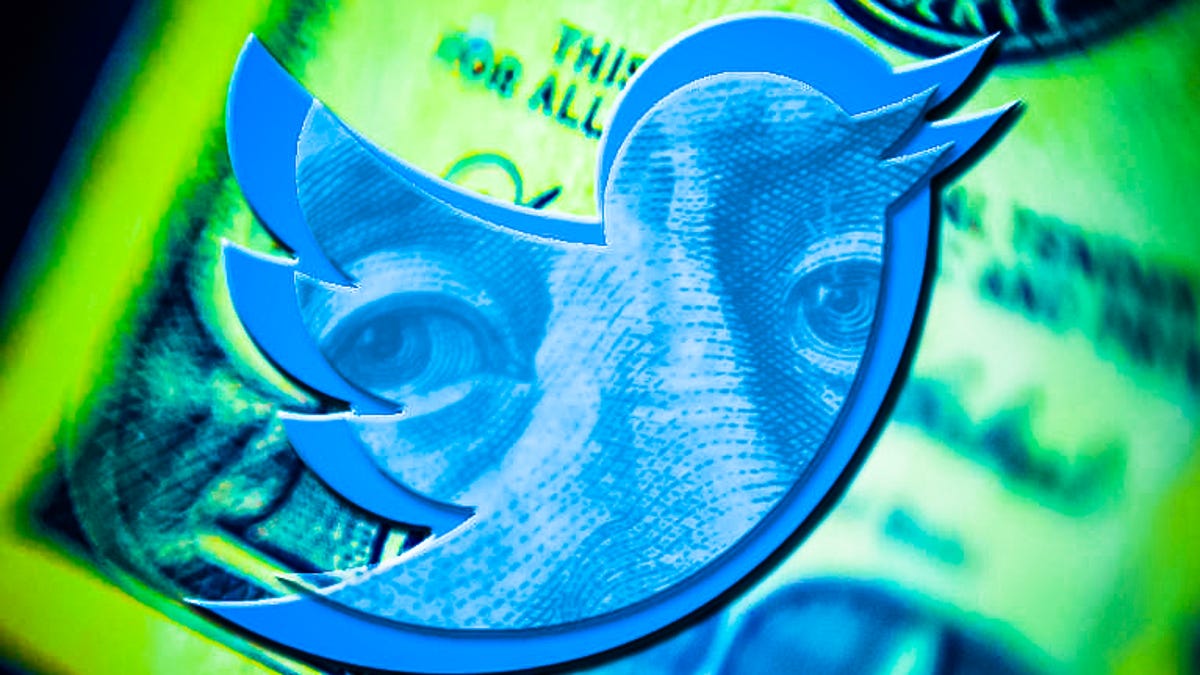Twitter Delays Change That Could Affect Your Favorite Bot
The social media company plans to charge $100 per month for "basic" access to a tool used by developers, researchers and other users.

Elon Musk bought Twitter for $44 billion in October.
Twitter's new owner Elon Musk isn't done charging users who rely on the platform.
The social media service is planning to start charging $100 a month for a "basic tier" to access Twitter's application programming interface, which developers and researchers use to analyze public tweets. The company was scheduled to make this change Feb. 13, but Twitter said Monday it would delay the rollout for a "few more days."
There has been an immense amount of enthusiasm for the upcoming changes with Twitter API. As part of our efforts to create an optimal experience for the developer community, we will be delaying the launch of our new API platform by a few more days.
— Twitter Dev (@TwitterDev) February 13, 2023
More information to follow… https://t.co/FUZcwJqf9p
Twitter initially said it would end a free version of its API on Feb. 9, but the move drew widespread criticism from users who depend on the site's data. Researchers, for example, have used Twitter's API to study sentiments about COVID-19 and mental health. Developers have created automated accounts known as bots to regularly tweet out song lyrics, cat photos and weather updates.
Twitter said last week it will introduce a new option for free access "limited to Tweet creation of up to 1,500 tweets per month for a single authenticated user token," including "Login with Twitter."
The change could affect Twitter bots. A Twitter account with more than 579,400 followers that tweets out a possum photo every hour wrote in a thread last week that it might have to adapt to these changes.
"Depending on how it's handled, the bot might stop functioning for some time," @PossumEveryHour said in a tweet.
Hi All
— Possum Every Hour (Please See Pinned Tweet) (@PossumEveryHour) February 9, 2023
An update regarding the API situation.
Twitter is currently extending the free API access through February 13, but they're also introducing a new free API tier for sending 1500 tweets a month
Depending on how it's handled, the bot might stop functioning for some time 🧵 https://t.co/6W9r7naS4H
The change is also another example of how Twitter is trying to make more money outside of advertising. On Feb. 10, Twitter also rolled out the ability to tweet 4,000 characters rather than the typical 280 characters for US Twitter Blue subscribers. The company made these announcements on the same day that Twitter users had trouble sending tweets and direct messages on the site.
Musk previously tweeted that Twitter was making changes because the company's free API was "being abused badly right now by bot scammers & opinion manipulators."
"This is a new chapter for the Twitter API to increase quality, reduce spam, and enable a thriving ecosystem," Twitter's developer account tweeted Wednesday.
This is a new chapter for the Twitter API to increase quality, reduce spam, and enable a thriving ecosystem. We appreciate your patience as we implement these changes and we can’t wait to see what you build next!
— Twitter Dev (@TwitterDev) February 8, 2023
Stay tuned for more information on continued Twitter API access.
Twitter's explanation hasn't appeased developers and researchers who rely on Twitter data. On Feb. 6, the Coalition for Independent Technology Research published a letter urging Twitter to make the API accessible for researchers, journalists and others who conduct public interest research about important topics such as consumer fraud, mental health and crisis response.
"This dramatic restriction will disrupt critical projects from thousands of journalists, academics, and civil society actors worldwide who study some of the most important issues impacting our societies today," the letter said.
An automated account that tweets out photos of a black cat named Pepito returning home tweeted earlier this month that charging for API access would mean the end of the account. "I guess we could give all Verified users access to the API for posts like this," Musk replied to @PepitoTheCat.
Twitter and its developers have clashed in the past. In 2015, Twitter co-founder and then-CEO Jack Dorsey apologized to developers after the company suspended access to their data for sites that tracked tweets deleted by politicians.
Musk's move to charge for features that are typically free has irked people who use the platform, especially because the changes are made rapidly with little notice. Twitter fumbled the rollout of an updated verification system last year that allowed users to get a coveted blue checkmark if they pay a subscription fee. Fake accounts impersonated major brands, prompting Twitter to temporarily pause the rollout of the subscription service in November.

